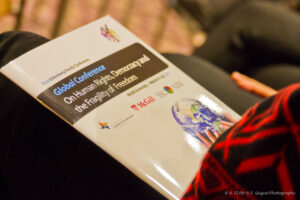
Focus Online presents the sights and sounds of the Third Echenberg Family Conference in Human Rights. |
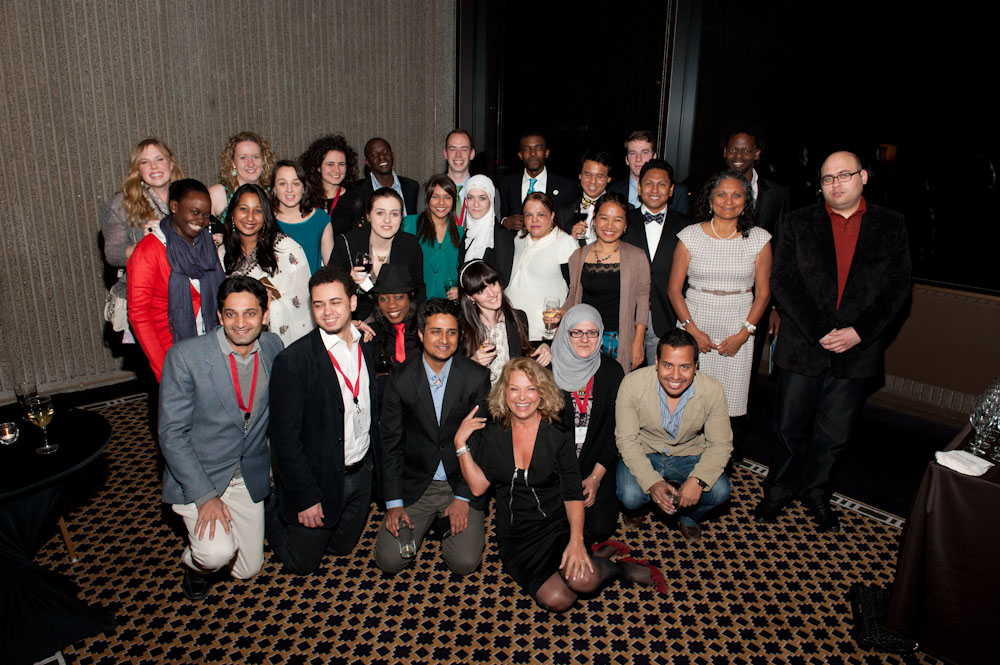
The Young Leaders gather with Penny Echenberg and Dr. Nandini Ramanujam (Young Leaders Coordinator), after the first full day of the conference. (PIC: Rick Robert) |
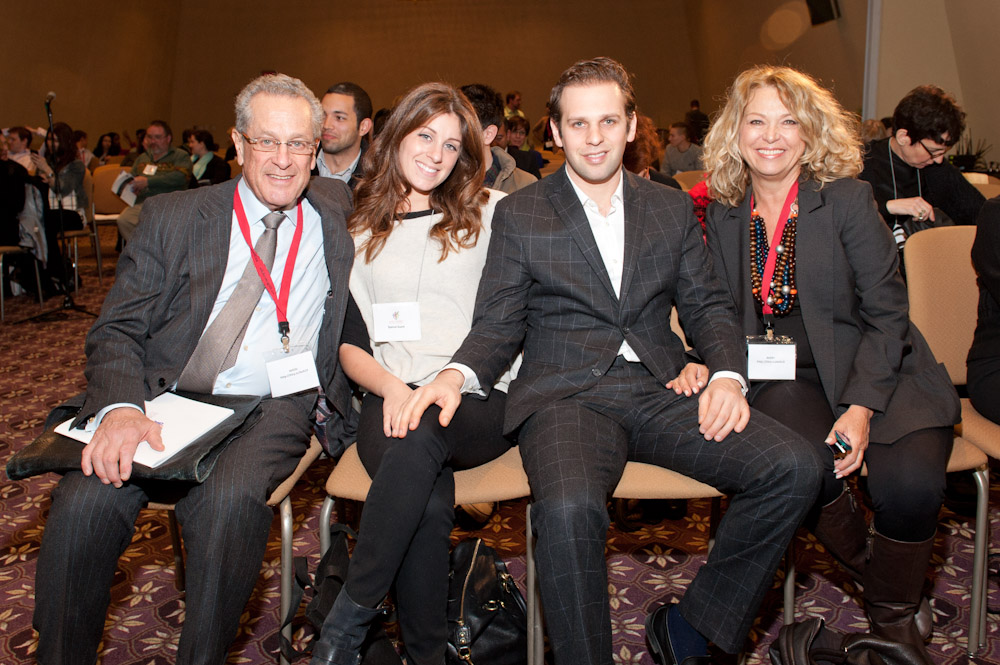
Gordon, Penny and the Echenberg family are proud to support the third Global Conference in Human Rights, where they were actively participants. (PIC: Rick Robert) |
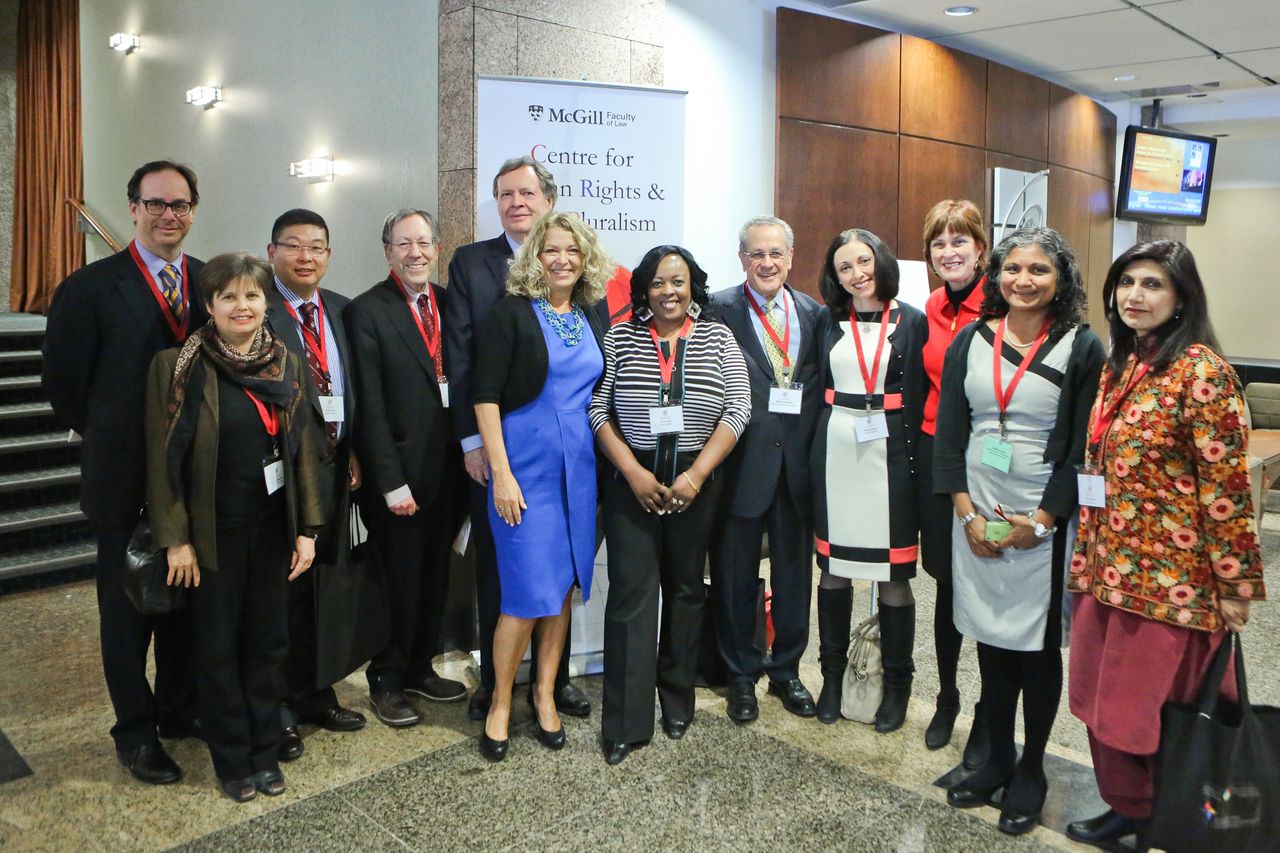
Speakers at the Opening Plenary Session, from L to R: Dean Daniel Jutras, Colleen Sheppard, Yang Jianli, the Hon. Irwin Cotler, Raymond Chrétien, Penny Echenberg, Flora Terah, Gordon Echenberg, Marina Nemat, Heather Munroe-Blum, Nandini Ramanujan and Fouzia Saeed. (PIC: Adam Scotti) |
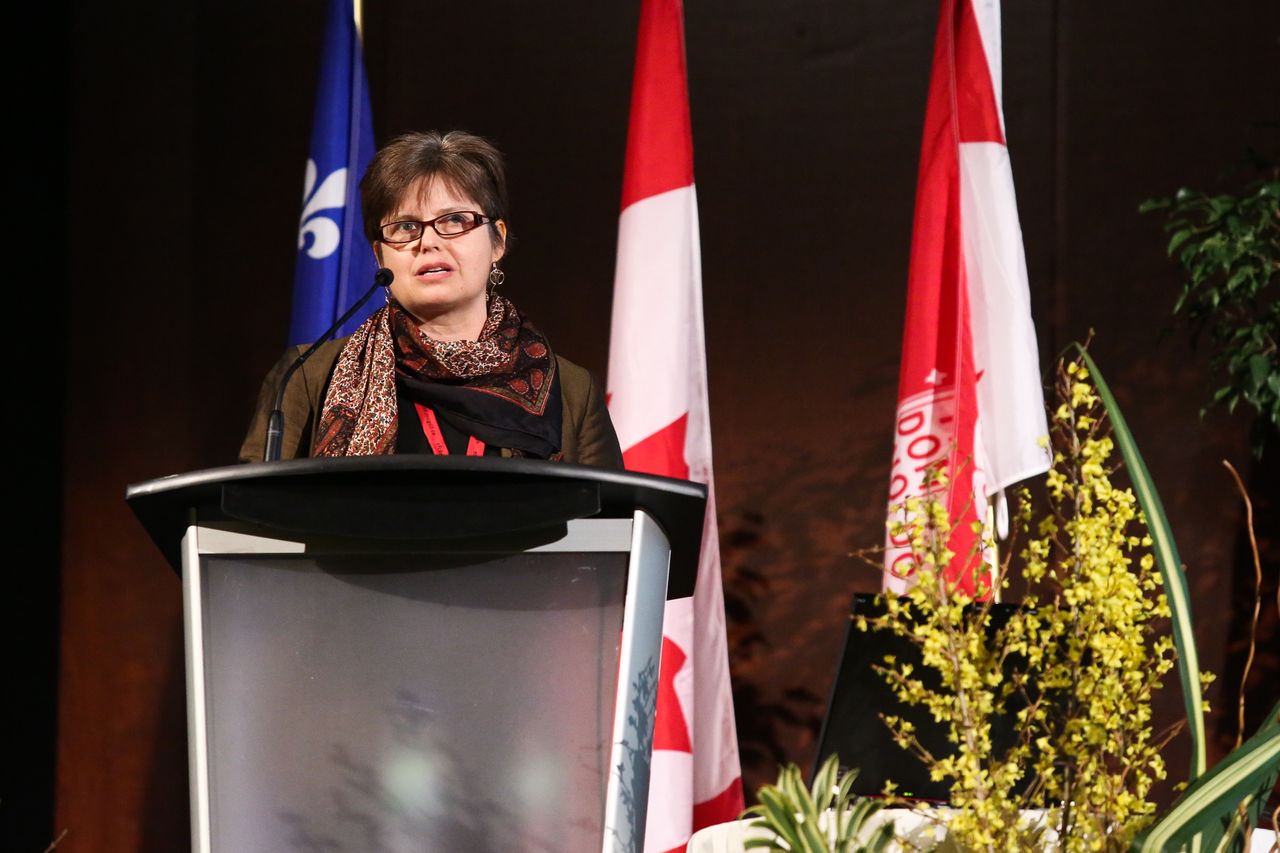
Colleen Sheppard, Conference Chair/McGill CHRLP Director (PIC: Adam Scotti) |
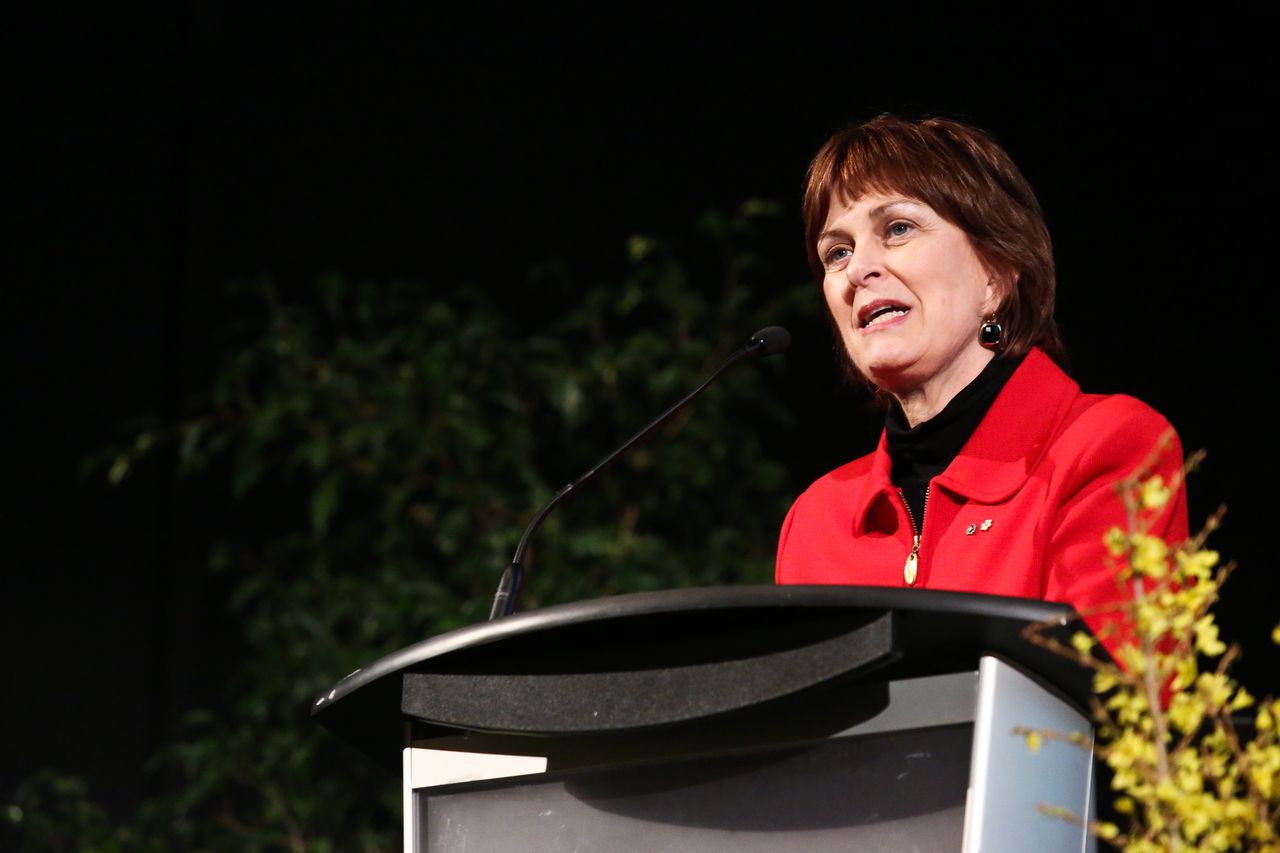
Heather Munroe-Blum, Principal, McGill University (PIC: Adam Scotti) |
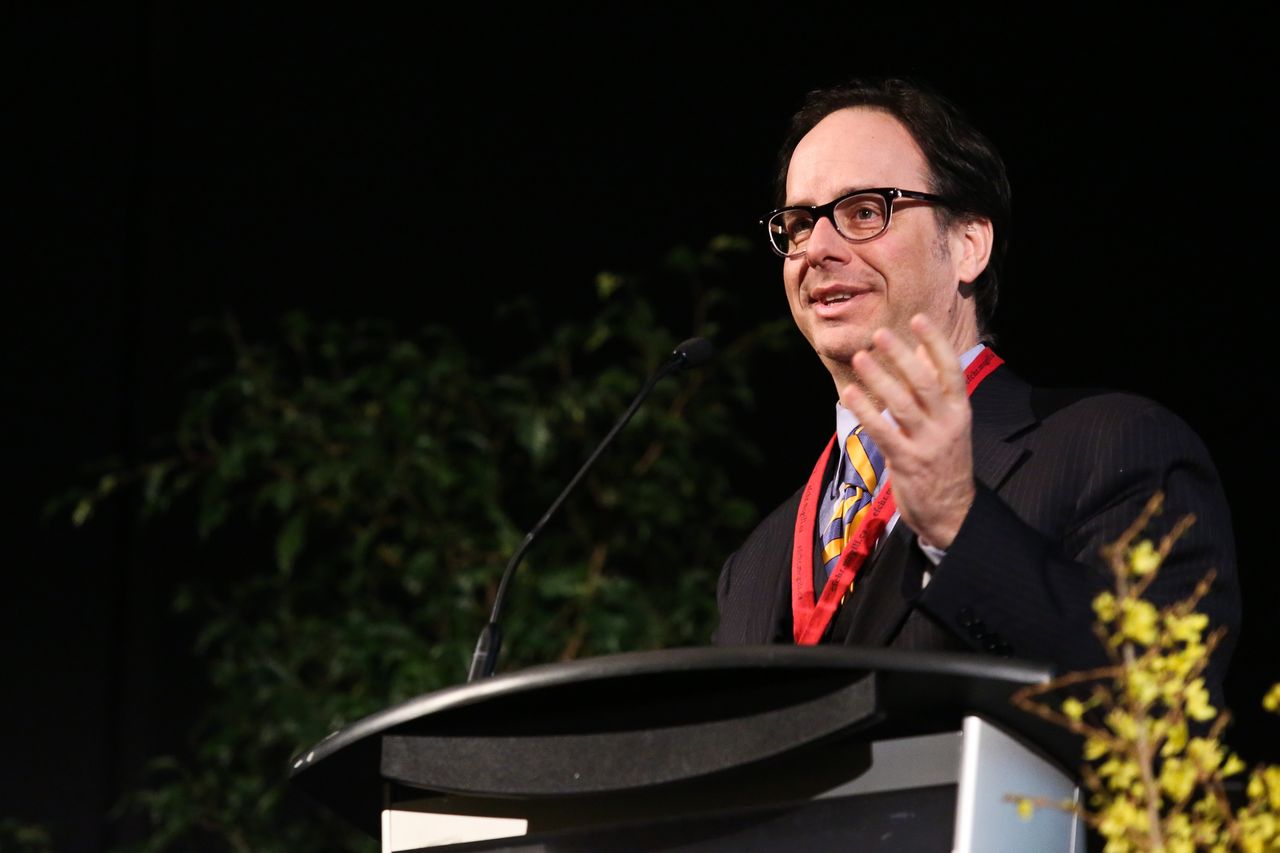
Daniel Jutras, Dean, McGill Faculty of Law (PIC: Adam Scotti) |
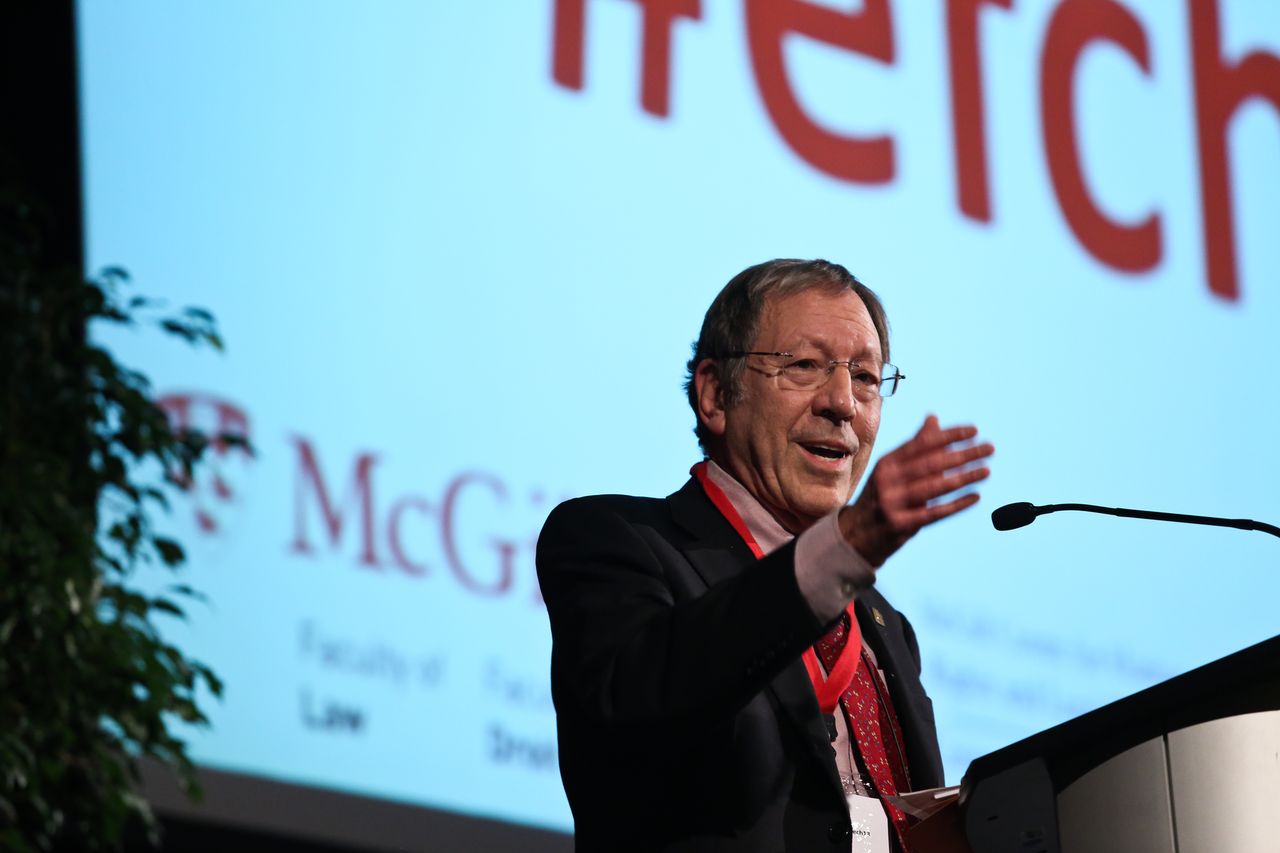
The Hon. Irwin Cotler, Honorary Conference Co-Chair (PIC: Adam Scotti) |
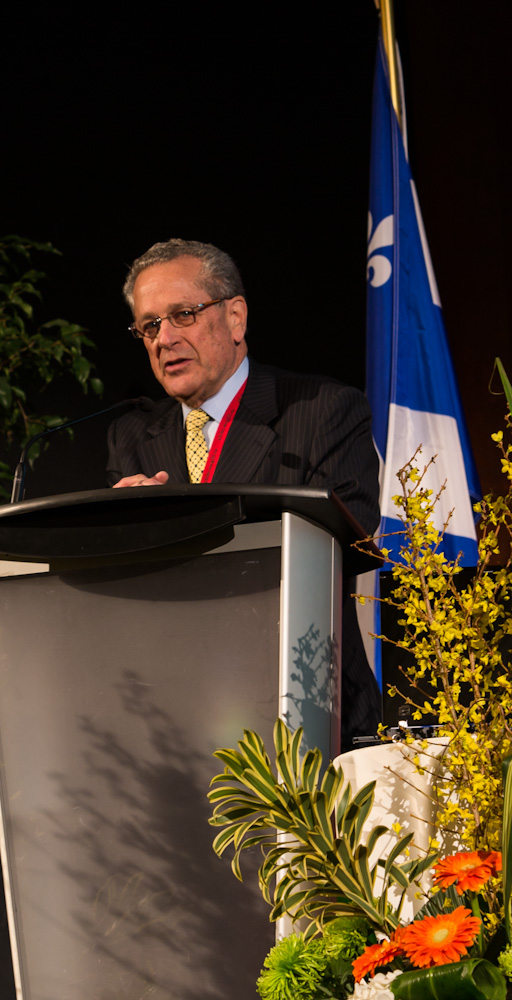
Gordon Echenberg, conference series founder (PIC: Adam Scotti) |
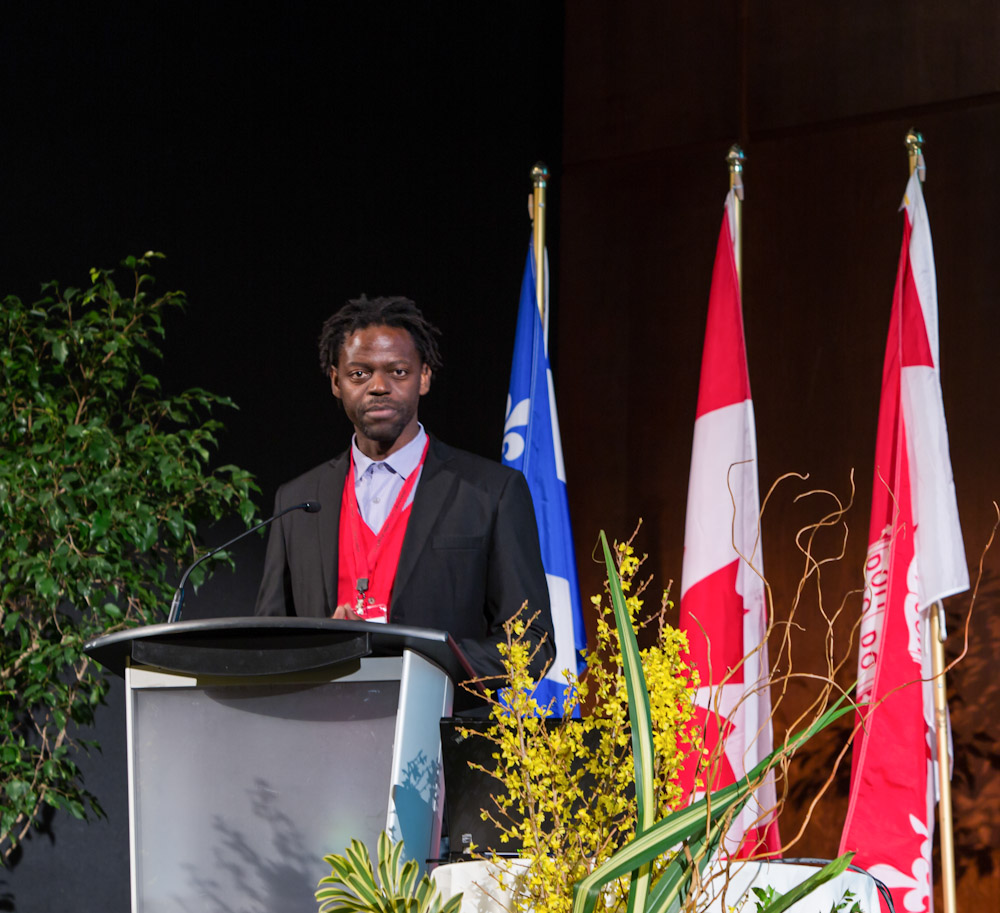
T.M.S. Ruge, co-founder of Project Diaspora, based in Uganda, who facilitated this year’s Young Leaders Forum, introduces “What Democracy Means to Me,” a video showcasing the 24 international Young Leaders during the week preceding the conference. (PIC: Helmut Mohelsky) |
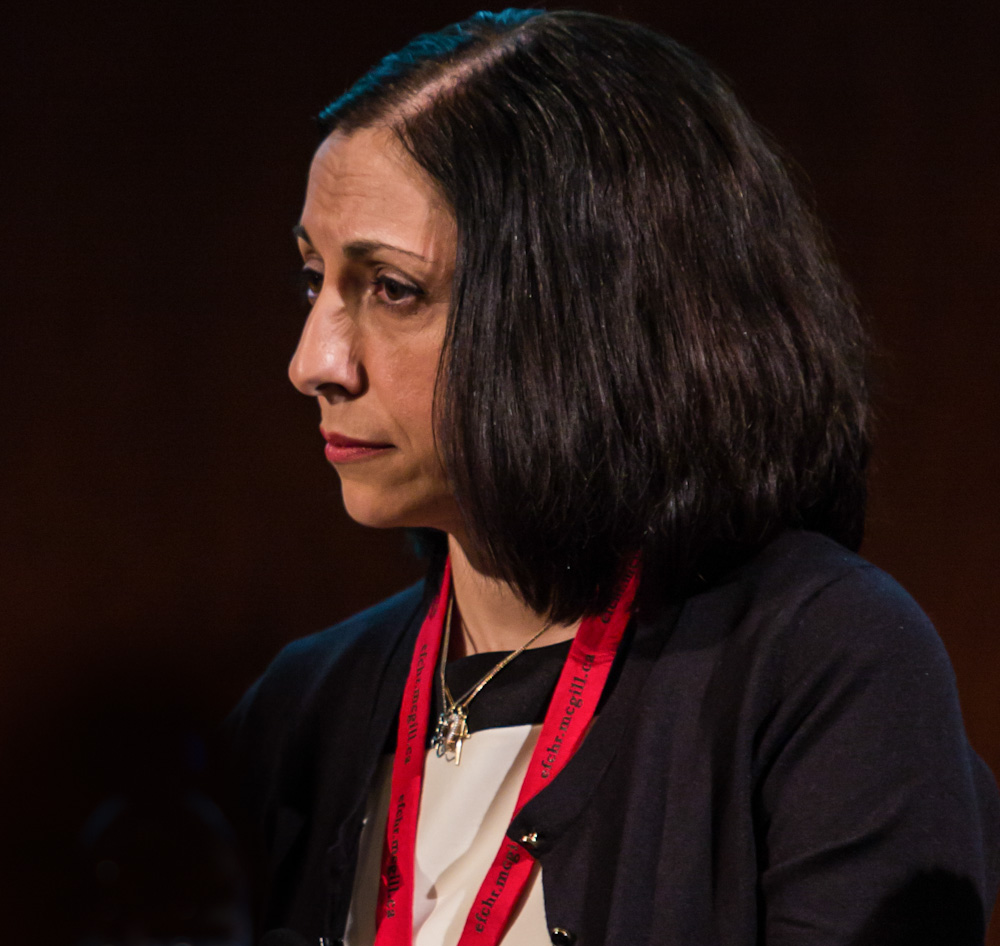
“Silence is a weapon of mass destruction that has taken millions of lives,” said panelist Marina Nemat, an Iranian author and human rights activist who lives in exile in Toronto. She spoke movingly about her torture and imprisonment for two years in Iran, when she was only 16. “It’s the right of my enemy, the Iranian government, to speak, but it’s the right of every political prisoner to use the same microphone,” she said, exhorting the media to “give an equal platform” to ex-political prisoners, “each time an Iranian official speaks on an international stage.” (PIC: Helmut Mohelsky) |
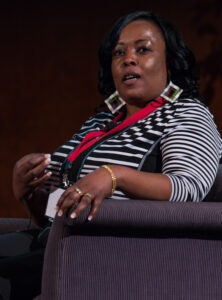
“To Canadians, I say: ‘Do not take your privileges for granted,'” said panelist Flora Igoki Terah, a Canadian-based Kenyan author who advocates against gender-based violence equality. Terah attested that she was abducted and tortured, and her son was killed, in an attempt to stop her from running for office in in Kenya, in 2008. “Why is a dispute over an election a battle to be fought on women’s bodies?” she asked. In the end, she says: “They can hurt you physically but they can’t break your spirit.” (PIC: Helmut Mohelsky) |
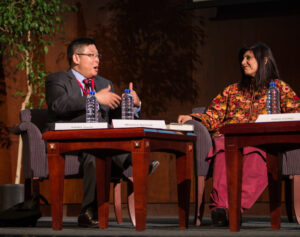
Former political prisoner and leading Chinese dissident Dr. Yang Jianli, with Pakistani human rights activist Fouzia Saeed, the Director of Mehergarh, a human rights and democracy centre in Islamabad. “Freedom is not free; freedom must be earned,” said Dr. Yang. In her address, Dr. Saeed spoke of the “democratic backdrop” needed for the success of human-rights campaigns, saying: “I may not get back at the person who hurt my dignity, but I can get back at the system that allowed the indignity.” (PIC: Helmut Mohelsky) |
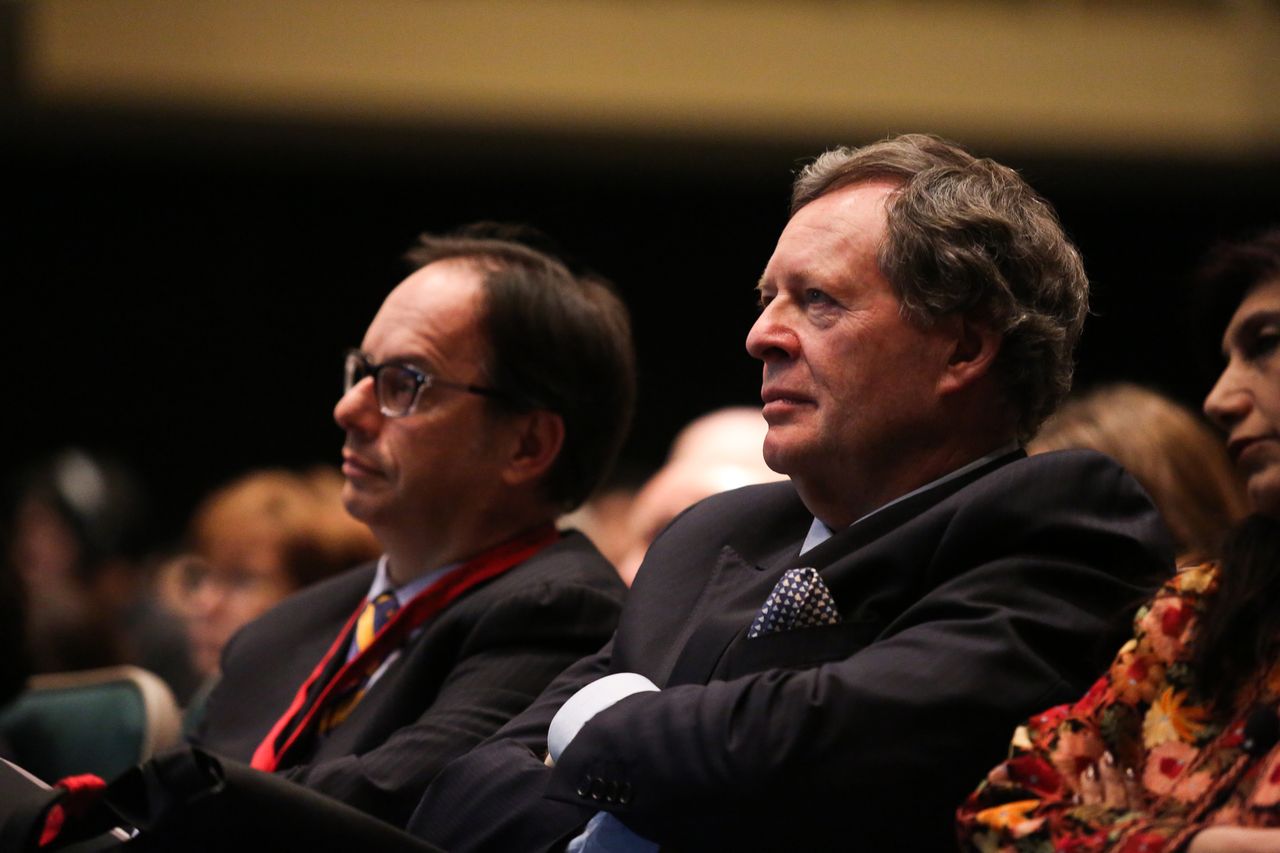
Dean Daniel Jutras and Honourary Conference Co-Chair Raymond Chrétien (Fasken Martineau Dumoulin LLP, former Canadian ambassador to Zaire, Mexico, USA and France) listen to first-hand stories of suffering and courage in the face of human rights abuses, at the conference’s Opening Plenary session Thursday night. (Pic: Adam Scotti) |
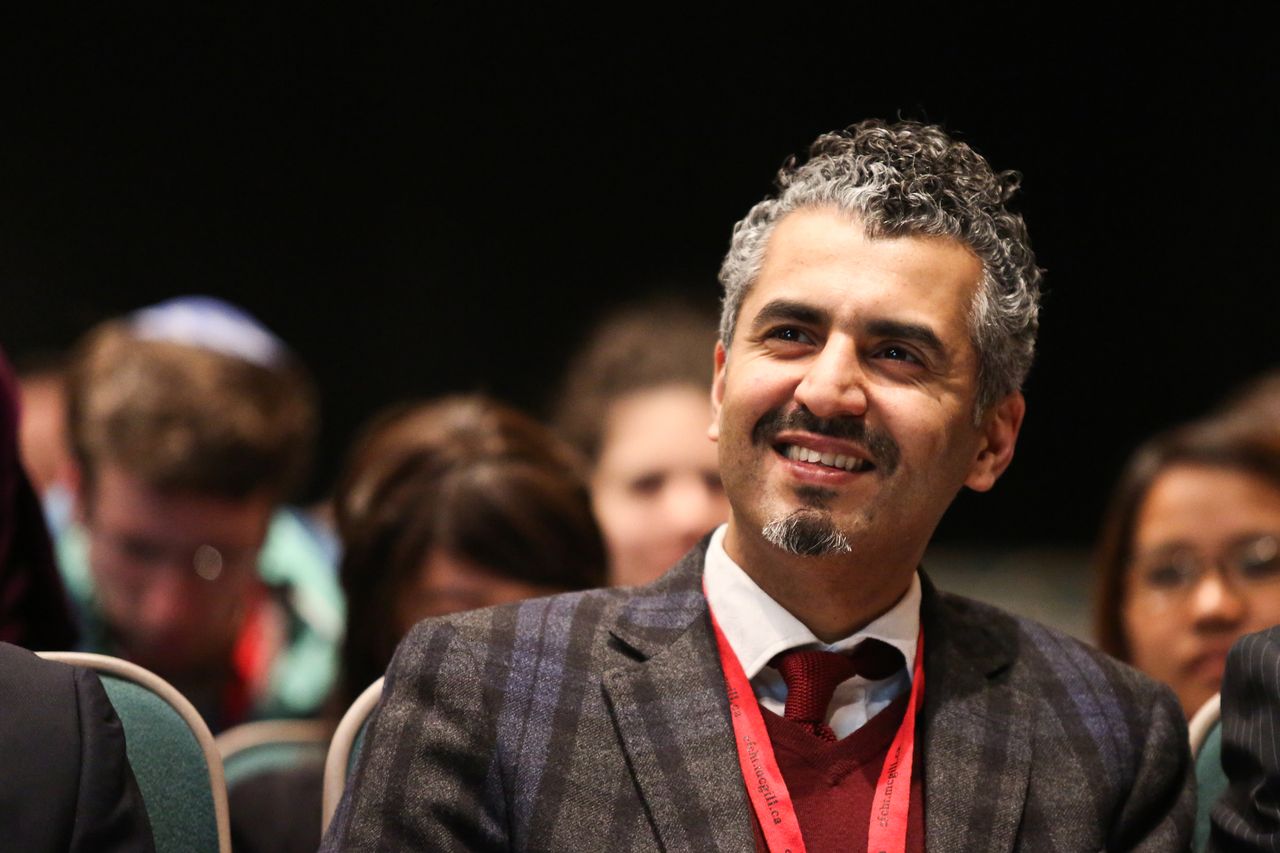
Speaker Maajid Nawaz listens to tales of human strength and resistance at the Opening Plenary. (PIC: Adam Scotti) |
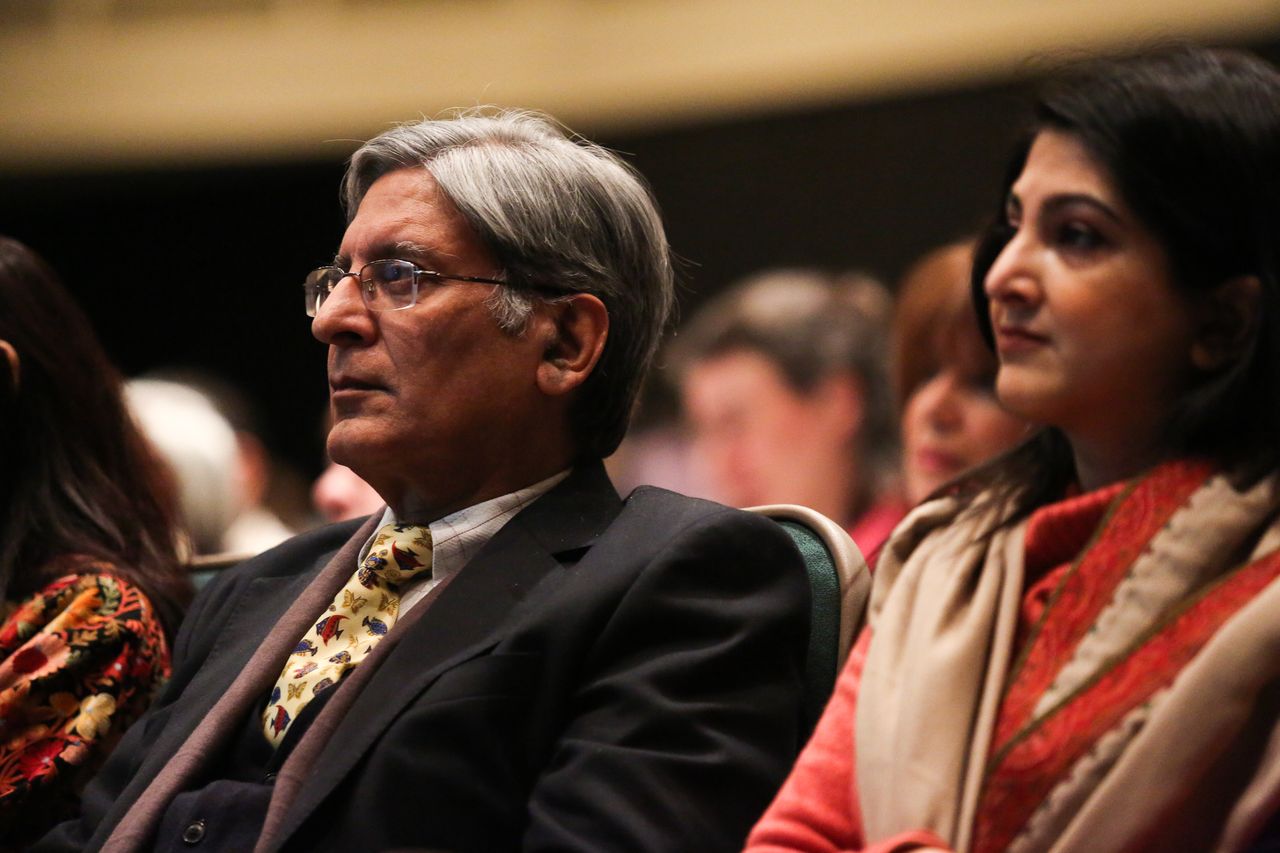
Pakistani Senator Aitzaz Ahsan, leader of the 2007 Lawyer’s Movement, listens to the moving stories told at the Opening Plenary. (PIC: Adam Scotti) |
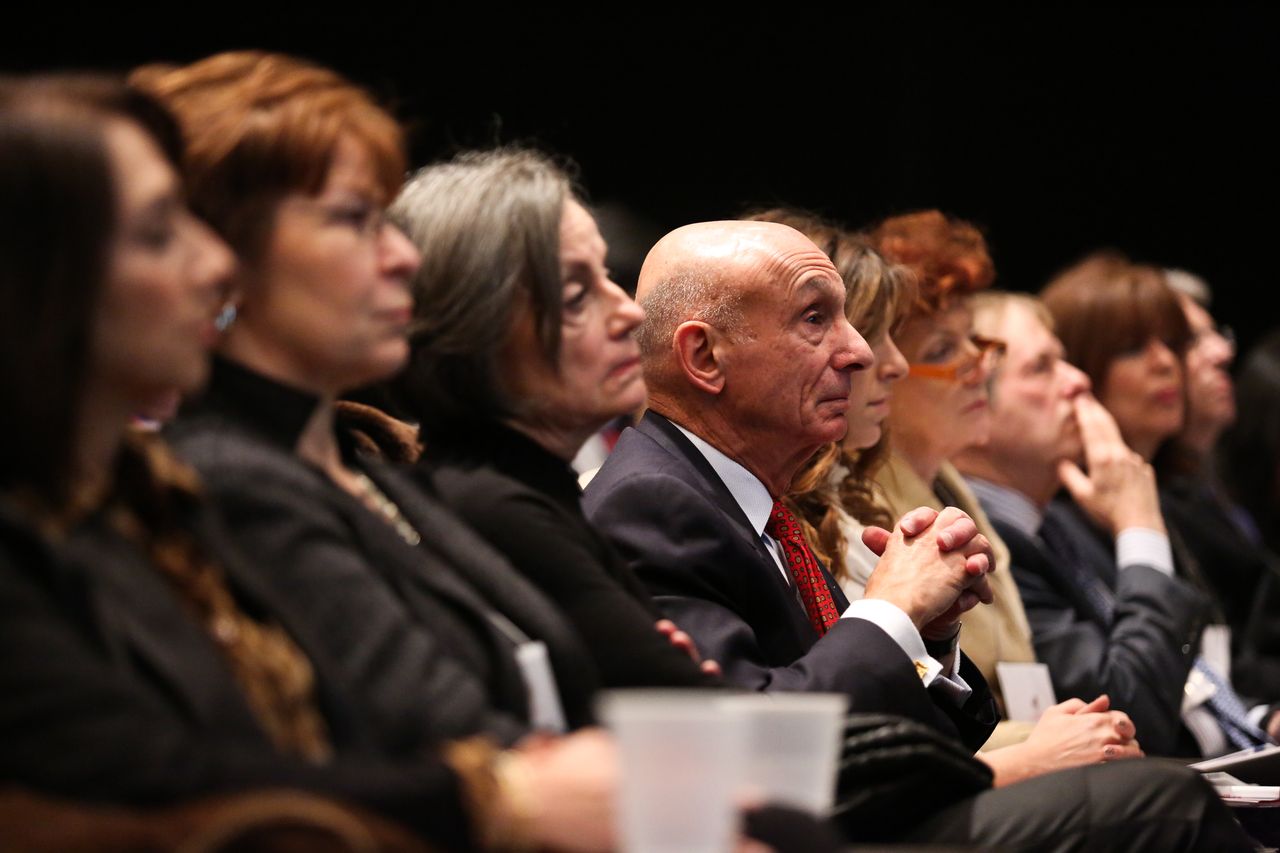
Rapt audience at the Opening Plenary (PIC: Adam Scotti) |
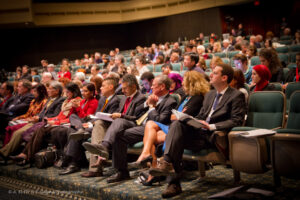
Over 200 people attended the opening event of the conference, held in the auditorium of the Centre Mont Royal, Montreal. (PIC: Amir El Etr) |
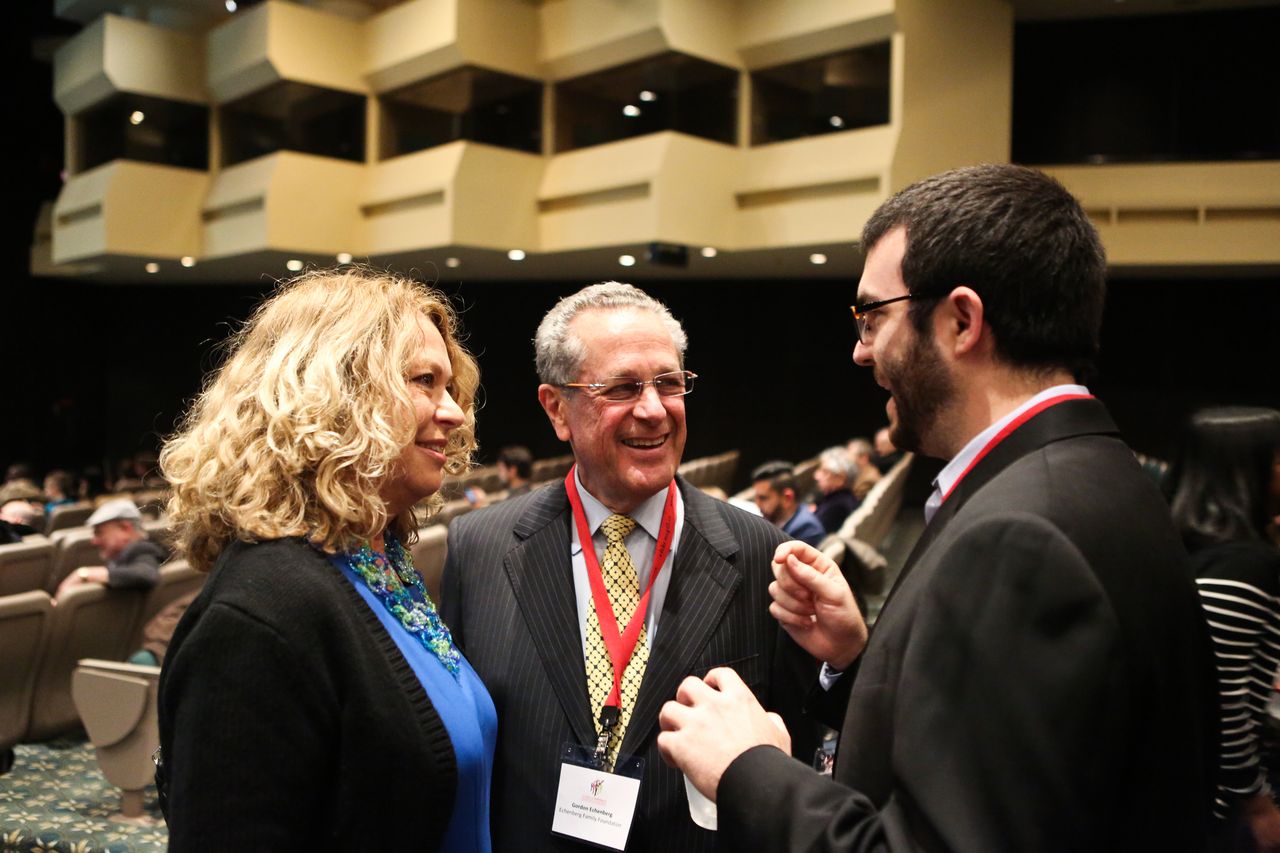
Penny and Gordon Echenberg greet David Keyes, founder of CyberDissidents.org (PIC: Adam Scotti) |
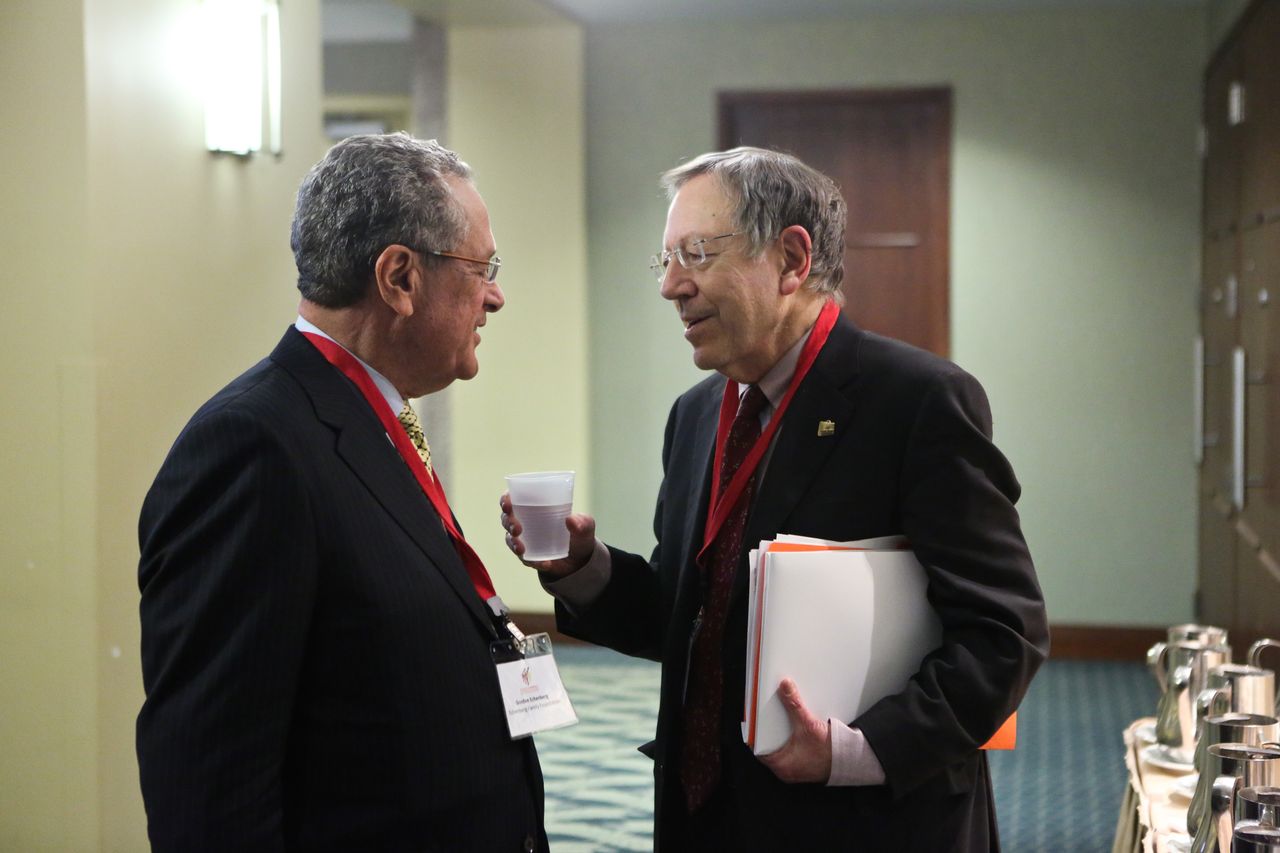
Gordon Echenberg and the Hon. Irwin Cotler, Professor Emeritus of McGill’s Faculty of Law, Member of Parliament and Honourary Conference Co-Chair, catch up at the conference. (PIC: Adam Scotti) |
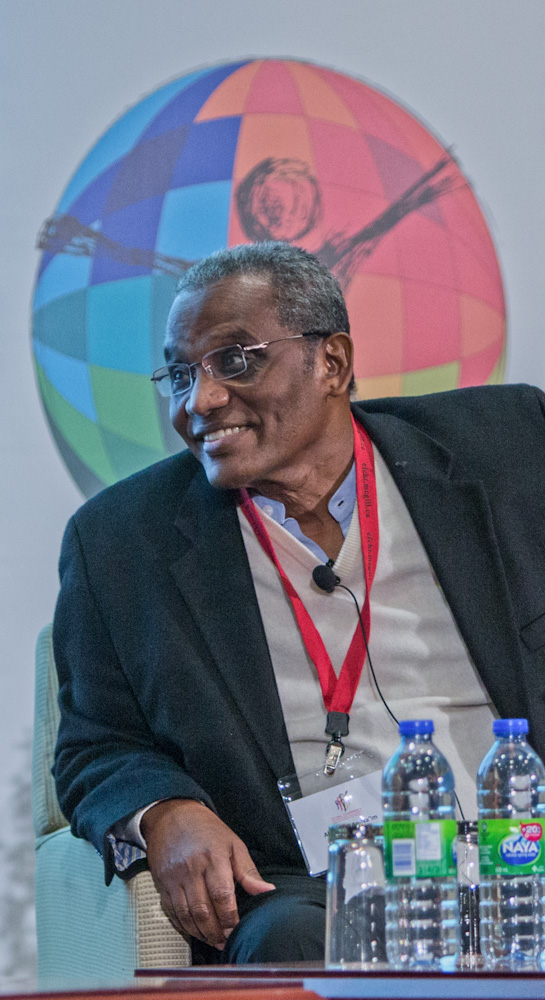
Renowned scholar of Islamic law, Abdullahi An-Na’im (Emory University), spoke about secularism and Islam in light of the recent political transitions in North Africa: “Secularism is defined by neutrality of the state vis-à-vis religion, not by separating politics and religion.” (PIC: Helmut Mohelsky) |
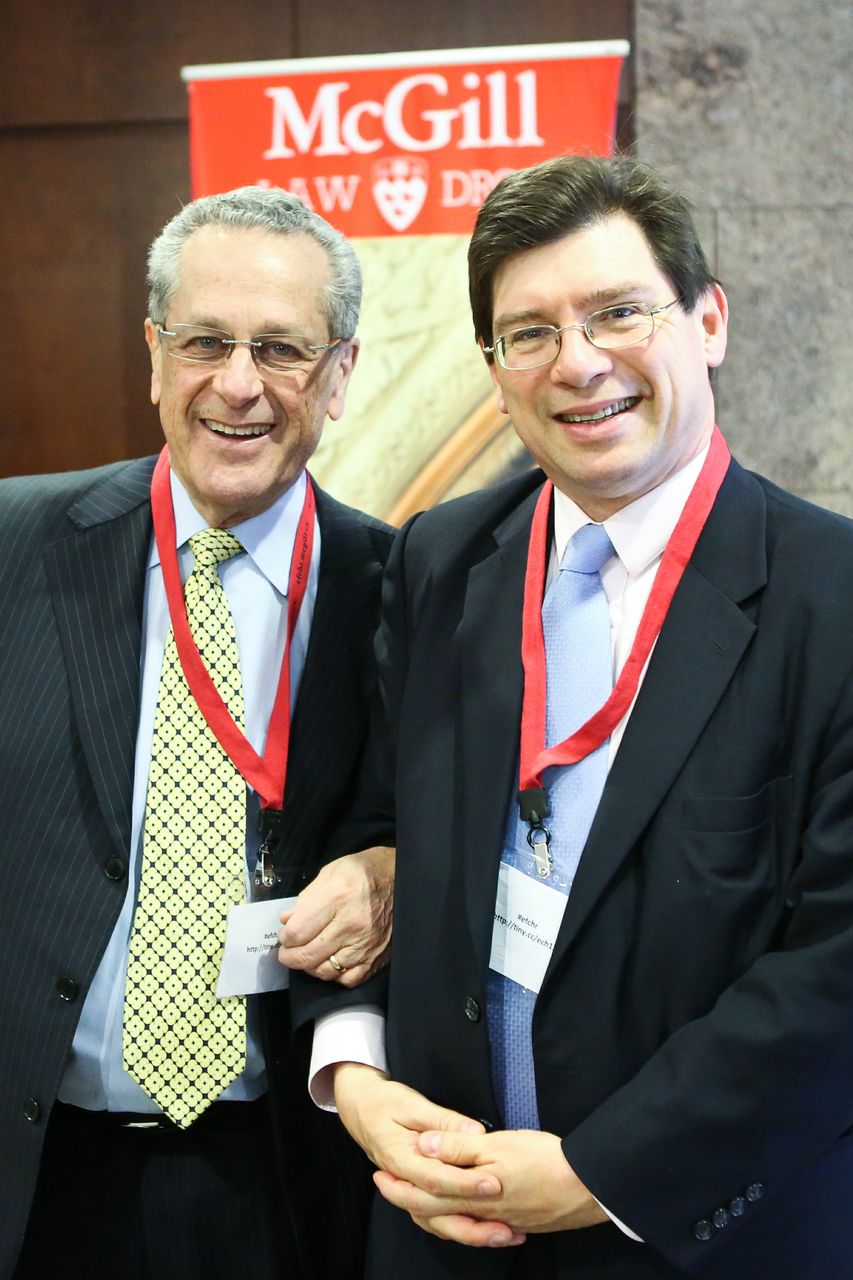
Gordon Echenberg with McGill Law Professor François Crépeau, who served as the moderator of the conference’s keynote address by Martin Jacques. (PIC: Adam Scotti) |
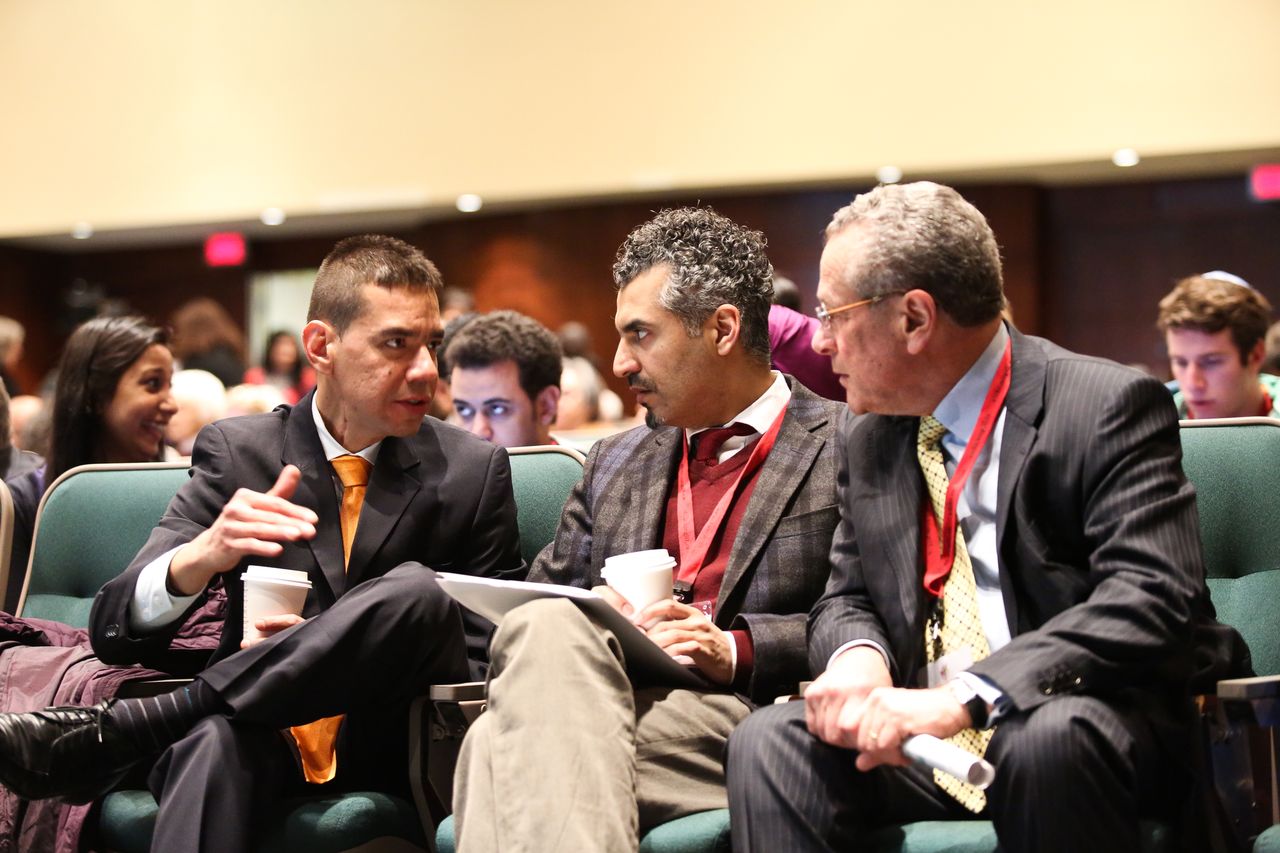
The conference united such diverse speakers as Oscar Morales, a Colombian social media activist who spoke on the Borderless Technologies panel, and Maajid Nawaz, a counter-extremist consultant from UK/Pakistan who spoke on the Diverse Voices panel, seen here deep in discussion with conference founder Gordon Echenberg. (PIC: Adam Scotti) |
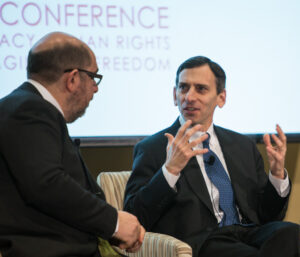
The conference’s first panel discussion, on the Critical Connections between Democracy and Human Rights, featured Abdullahi An-Na’im and Joel Rosenthal (President, Carnegie Council for Ethics in International Affairs), shown here with moderator Daniel Weinstock (Professor, McGill Faculty of Law) on left. (PIC: Justin Fisch) |
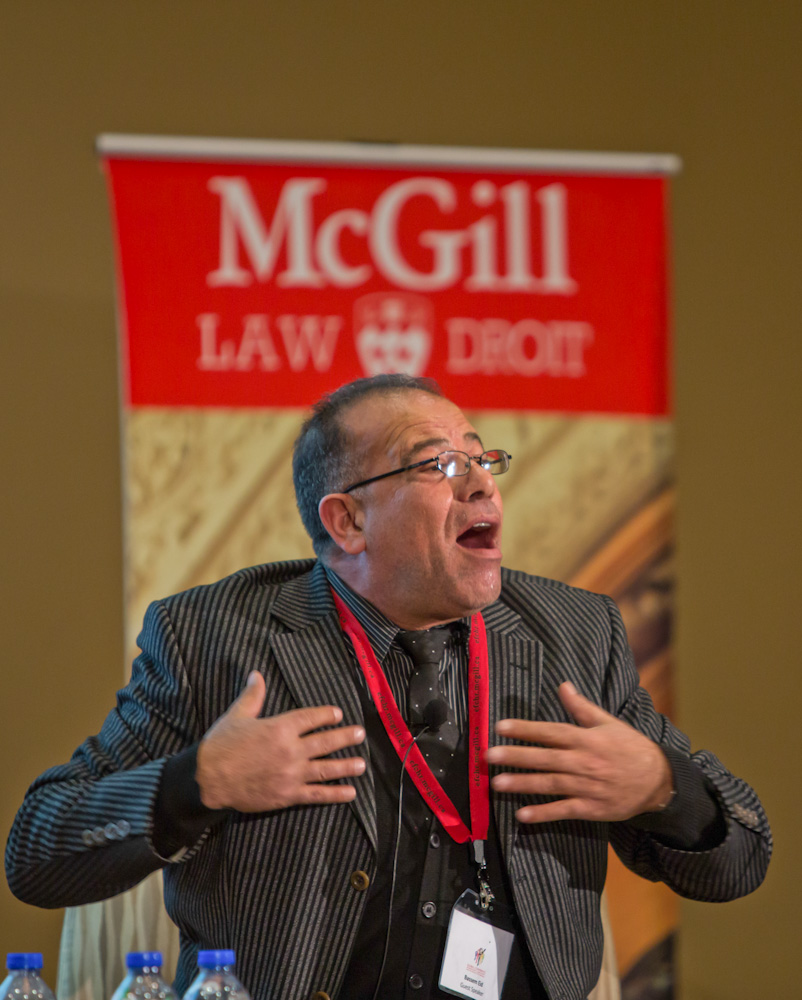
During a spirited panel discussion on the Arab Spring, moderated by McGill Law Professor Frédéric Mégret, Bassem Eid (Palestinian Human Rights Monitoring Group) voiced his opinion on the Israeli-Palestinian conflict: “It’s very easy to solve it, but without the international community, because they each have their own interests.” (PIC: Helmut Mohelsky) |
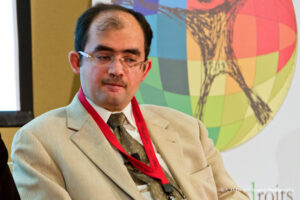
Syrian activist Radwan Ziadeh (above) told of a seven-year old boy whose family were bombed in a bread-line; of there being only 2,400 left from a town of 250,000 people; and of the dictator, Asad, having more than 400 SCUD missiles & chemical weapons ready to use against the Syrian people. “Where is the international community?” he asked. “Why is the world leaving us alone?” On the same panel was Egyptian activist Yara Sallam, Palestinian activist Bassem Eid, and Daniel Calingaert (Freedom House) who described how at his organization, they “have a very bottom category, ‘the worst of the worst,’ and Saudi Arabia has been there consistently for the past 50 years.” (PIC: Amir El Etr) |
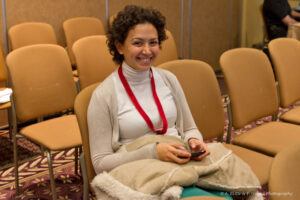
Egyptian activist Yara Sallam (Women Human Rights Defenders Program, Nazra for Feminist Studies) also participated in the Arab Spring panel discussion, where she described the continuing violation of women’s rights in Egypt: “We’re always being accused of being western when we talk about women’s issues and human rights: We will not be blackmailed.” (PIC: Amir El Etr) |
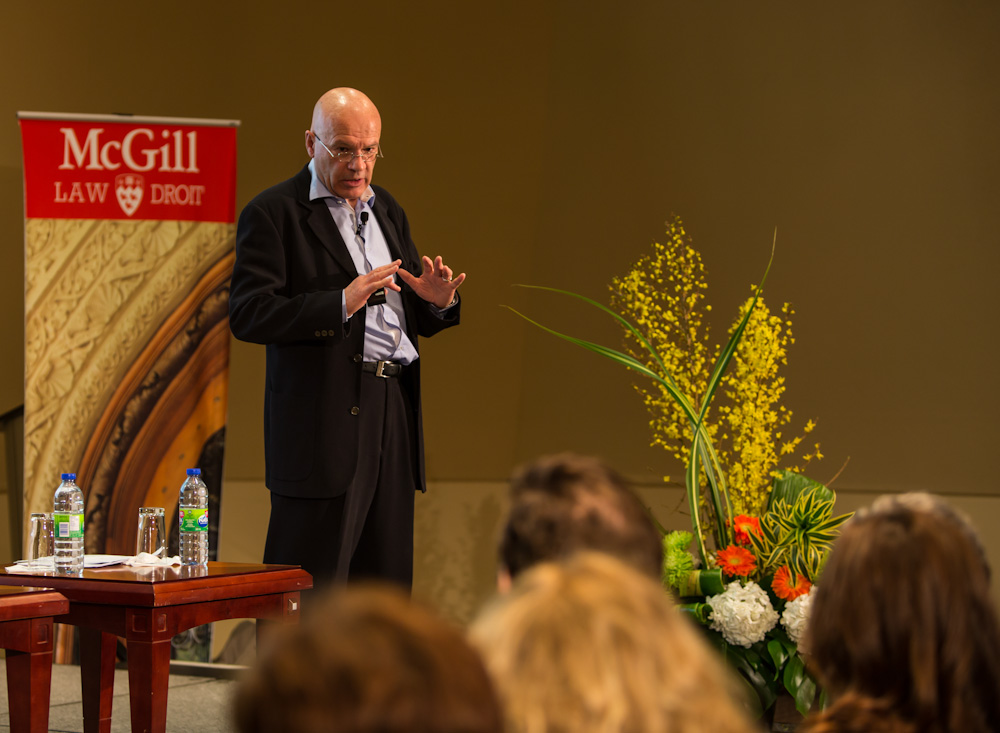
Keynote speaker Martin Jacques (UK economist and author) on “The Future of China,” explaining why “Westerners have gotten China so extraordinarily wrong over the past 30 years.” In his view, “the future will take us back to a pre-Western domination picture,” with China producing 33% of global GDP by 2030, with India and the US in distant second and third places. “This does not mean the decline of democracy,” he insisted: “The rise of China (and other emerging states) is the most important act of democratization in the last 200 years.” (PIC: Helmut Mohelsky) |
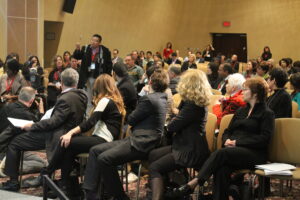
In a passionate, impromptu response to the keynote address, opening plenary panelist Yang Jianli pleaded for foreigners to recognize there are “two Chinas,” and to look beyond the dazzling, successful nation that he calls “China Inc.,” to the more hidden reality of its repressed people. (PIC: Justin Fisch) |
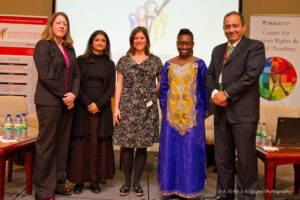
McGill Law Professor Allison Christians moderated a panel on Human Dignity, Economic Justice and Democracy, featuring (L to R): Anuradha Mittal (Oakland Institute, India/USA), Alana Klein (Professor, McGill Faculty of Law, Canada), Jacqueline Musiitwa (lawyer, WTO advisor, Rwanda) and Daniel Cordova (Instituto Invertir, Peru). (PIC: Amir El Etr) |
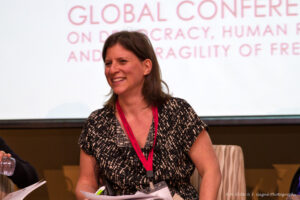
McGill Law’s Alana Klein explored how “the right to health” poses new challenges for human rights advocates in Canada, while Jaqueline Musiitwa outlined Zambia’s “rags-to-riches-to-rags-again story.” Daniel Cordova duscussed corruption in state-owned utilities, and Anuradha Mittal described the “economic dictatorship” of foreign investors in developing nations, saying: “Large mechanized farms don’t sustain people or feed Africa. Calling it so is just greenwashing, or what we call ‘poorwashing.’ It is looting Africa all over again.” (PIC: Amir El Etr) |
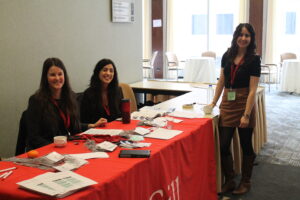
Conference logistics are ably handled by Martha Chertkow and other McGill Law students (here, Nour Rashid and Frédérique St-Jean) working as Assistant Coordinators. (PIC: Justin Fisch) |
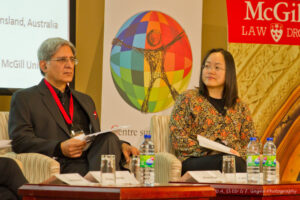
Pakistani Senator Aitzaz Ahsan (founder of Lawyer’s Movement) and Catherine Lu (McGill Political Science Professor) spoke Saturday morning on “Justice, the Rule of Law and Democracy: Protecting Fundamental Freedoms and Human Rights.” The panel was moderated by McGill Law Professor Vrinda Narain and featured South African Professor Rashida Manjoo (UN Special Rapporteur on Violence Against Women), who opined: “We need to talk about the patriarchy again. Feminism has become a dirty word. We need to go back to these basics.” (PIC: Amir El Etr) |
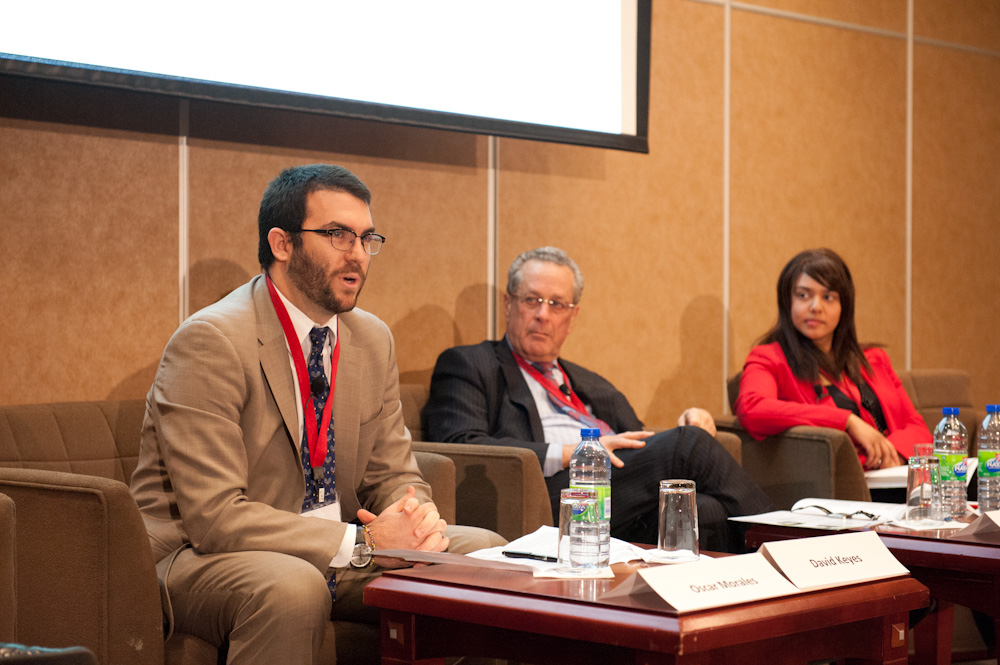
When introducing the panel on “Borderless Technologies and New Movements for Social Change,” moderator Gordon Echenberg expressed his hopes for the Young Leaders and other activists, “who will employ technologies, that I can barely use, to make a difference.” The panel included Young Leader Talyn Rahman-Figueroa (on right), as well as social media activists Oscar Morales (Founder, One million Voices Against FARC) and David Keyes (founder, CyberDissidents.org), on left. Keyes described how his group supports online activists in closed societies, saying: “We should trust a state only as much as they trust their own people – are their online bloggers fearful? Are their social activists imprisoned? (PIC: Rick Robert) |
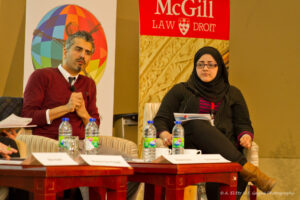
McGill Law Professor Shauna Van Praagh moderated the panel on “Listening to Diverse Voices: Expanding Democratic Participation,” with speakers Alan Huynh (youth advocate, Australia), Maajid Nawaz (former Islamist radical turned counter-extremism consultant, UK/Pakistan), pictured on left, and Susan al Shahri (Young Leader, Oman), on right, who noted that “social pressure is sometimes more powerful than the law” as an obstacle to democratic participation. (PIC: Amir El Etr) |
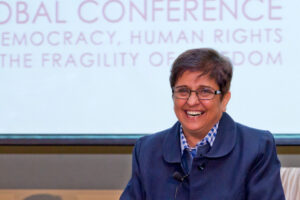
“How can a law breaker continue to be a law maker?” asked Kiran Bedi, a prominent Indian social justice and anti-corruption activist, formerly its first and highest-ranking female police officer. Bedi spoke about government corruption as a challenge to democracy in India and recommended a coalition of multinational universities that would publish ratings of each other’s policing and corruption. (PIC: Amir El Etr) |
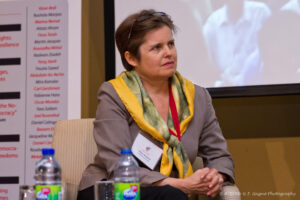
The Closing Plenary, “Pathways Forward: Sustaining Democracy in Turbulent Times,” featured Kiran Bedi, Jared Genser (prominent international human rights lawyer, founder of Freedom Now), and Mekdes Mezgebu (UN Development Programme Officer and a McGill Echenberg Fellow from Ethiopia), and was moderated by the Conference Chair and Director of the CHRLP, McGill Law Professor Colleen Sheppard, above. (PIC: Amir El Etr) |
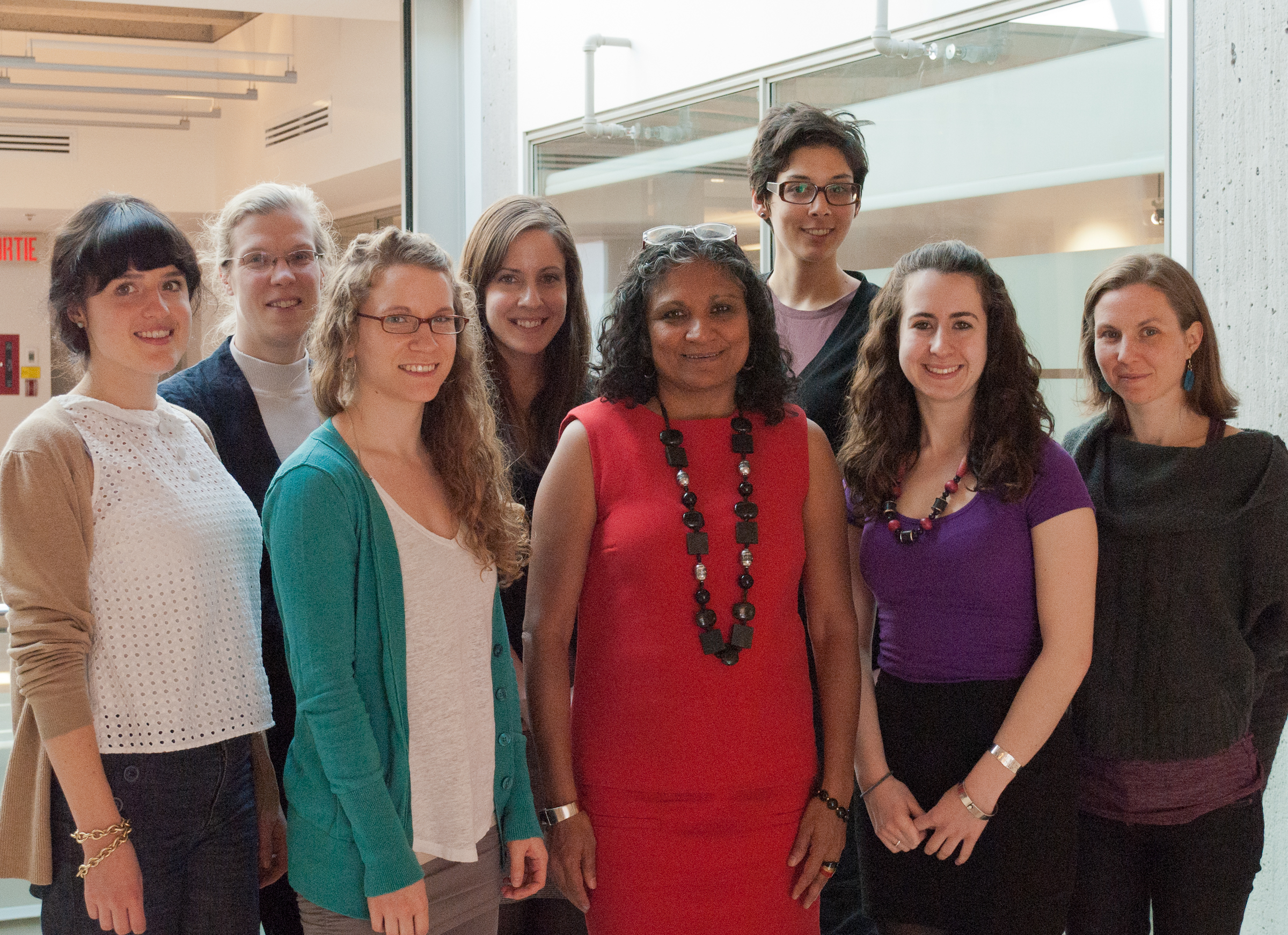
The conference organizing team relaxes after a job well done. Back row, L to R: Sharon Webb (Main event coordinator), law student Sarah Katz-Lavigne, law student Claire Gunner, Megan Lee (BCL/LLB’12). Front row: law student Louise Lavigne, Dr. Nandini Ramanujam, law student Martha Chertkow, Corri Longridge (BCL/LLB’12). Missing: law students Marion Sandilands, Rachel Zuroff, and Professor Colleen Sheppard. (PIC: Lysanne Larose) |






































